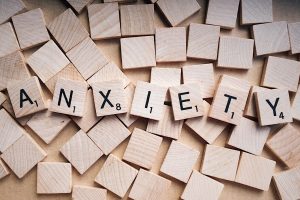We all work on autopilot at certain moments or most of the time. If your autopilot includes bad habits or anxious patterns, then it’s definitely time to turn off your autopilot.
We should all work on being more present and avoiding autopilot. But if your autopilot is leading to anxieties and depression, something needs to be done immediately.
If you ever watched Seinfeld, you might remember the episode when George decided to do everything differently than what he would usually do. He stops ordering tuna on toast at the coffee shop and tells women the truth, that he is unemployed and lives with his parents.
What would happen if you made a conscious decision to do everything differently for one day?
We tend to believe that our autopilot is a safe zone. We are familiar with our schedule and preferences and we tend to keep them although they are not serving us well or at all.
When we are anxious, our emotions are running the show. And we all know that things can get ugly when our emotions take control of our lives. Anxious autopilot can be a mess where we don’t think about our actions, behaviors, or thoughts, we are on the go without a second thought.

Turn Off the Anxious Autopilot
Sometimes when we don’t think about what we should do next, it’s much easier for our anxious autopilot to choose the actions that we should take.
When we are operating based on emotions, we usually focus on relationships and what others do wrong. We might feel sensitive to other people’s anxieties, expecting other people to be calm, seeking approval, asking others to calm down, distancing from other people, or complaining and venting to another person.
These are all normal human behaviors but it’s important to remember that when we try to manage other people, the way they think, their behavior, or what they feel, we will be inevitably be disappointed. Furthermore, we will raise the level of stress because we are not getting results that we want to get. It is uncomfortable to focus on yourself, to pay attention to your patterns, behaviors, and to ask yourself these questions. Am I operating on autopilot? Are my actions the right ones? Only when we decide to change our behavior we can move forward, be happy, and feel fulfilled.
Becoming more present
When we are more present, we can have tough conversations without overreacting. We can also accept criticism and see if there is something that can be done. We are able to sit with uncomfortable feelings such as our anxieties without trying to squash them immediately. The only thing that our autopilot can offer us is the established patterns of behaviors that are not giving us results.
We don’t want to present emotions as something bad. Intellect and emotions would not exist as separate and connected at the same time if they didn’t serve some evolutionary purpose. However, when you feel anxious you are operating on intellect that’s been influenced by biased emotions. It’s important to have control over your emotions. Once you do, you will deal better not only with your emotions but with other people’s anxieties and insecurities.
Ask yourself, what is your tuna on toast? Maybe it’s avoiding a family member because they annoy you? Maybe it’s saying no to invitations because you don’t feel like going out, and that doesn’t change no matter who is inviting you. When you change the way you think, good things start to happen. When you become aware of your autopilot, you are one step closer to changing anxious patterns or behaviors that don’t serve you anymore.




